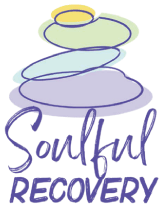Introduction
Relapse is a common occurrence in early recovery from addiction, affecting individuals across various substances, including nicotine. Understanding the factors that contribute to relapse rates, particularly in relation to nicotine use, is crucial for developing effective strategies to support individuals in their recovery journey. In this article, we will explore relapse rates in early recovery, the specific impact of nicotine on relapse, and research supporting these insights.
Relapse Rates in Early Recovery
Relapse rates in early recovery vary depending on the substance of addiction, individual factors, and the presence of support systems. According to research, the relapse rates for substance use disorders, including alcohol and drugs, range from 40% to 60% within the first year of recovery. Early recovery is characterized by heightened vulnerability to relapse due to factors such as withdrawal symptoms, psychological triggers, and changes in brain chemistry.
Impact of Nicotine on Relapse in Early Recovery
Nicotine, a highly addictive substance found in tobacco products, poses unique challenges for individuals in early recovery. Nicotine addiction often co-occurs with other substance use disorders, making it a significant risk factor for relapse. Several factors contribute to the impact of nicotine on relapse in early recovery:
1. Neurochemical Effects: Nicotine stimulates the release of dopamine in the brain’s reward pathway, producing feelings of pleasure and reinforcing addictive behaviors. Individuals in early recovery may turn to nicotine as a substitute for other substances, seeking relief from cravings and withdrawal symptoms.
2. Psychological Triggers: Nicotine use is often associated with specific rituals, environments, or emotional states. These cues can trigger cravings and lead to relapse, especially in individuals with a history of tobacco use alongside other addictive behaviors.
3. Stress Management: Nicotine use is commonly perceived as a coping mechanism for stress and anxiety. Individuals in early recovery may turn to nicotine to alleviate emotional distress, inadvertently increasing their risk of relapse.
4. Social Factors: Peer influence and social norms play a significant role in nicotine use and relapse. Individuals in early recovery may encounter social situations where tobacco use is prevalent, leading to temptation and increased vulnerability to relapse.
Research on Nicotine in Early Recovery
Numerous studies have examined the relationship between nicotine use and relapse in individuals recovering from other substance use disorders. Here are key findings from research supporting the impact of nicotine in early recovery:
1. Co-Occurrence of Addictions: Research indicates a high prevalence of nicotine dependence among individuals with other substance use disorders, highlighting the interconnected nature of addictive behaviors.
2. Increased Relapse Risk: Studies have found that individuals who continue to use nicotine during recovery from alcohol or drug addiction are at a higher risk of relapse compared to those who abstain from nicotine.
3. Role of Withdrawal Symptoms: Nicotine withdrawal symptoms, such as cravings, irritability, and mood disturbances, can exacerbate existing cravings for other substances, contributing to relapse vulnerability.
4. Treatment Outcomes: Research suggests that addressing nicotine dependence alongside other substance use disorders improves treatment outcomes and reduces the likelihood of relapse in early recovery.
Concluding Thoughts
In conclusion, understanding the impact of nicotine on relapse in early recovery is essential for providing comprehensive support to individuals seeking to overcome addiction. By addressing nicotine dependence, managing withdrawal symptoms, and integrating tobacco cessation interventions into recovery programs, healthcare professionals can enhance the success rates of individuals in early recovery and promote long-term sobriety. Further research and evidence-based interventions are needed to develop tailored approaches for addressing nicotine addiction within the context of substance use disorder treatment.

